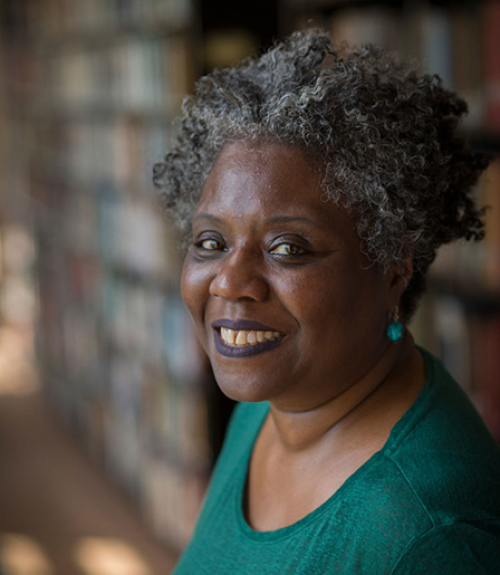This talk has been cancelled and will be rescheduled at a later date.
With cannabis legalization efforts spreading across the country, Noliwe Rooks, The W.E.B. Du Bois Professor of Literature and a professor of Africana studies and feminist, gender and sexuality studies, will be examining the negative underbelly of these efforts in a lecture entitled “Legalize it?; A Story of Cannabis, Race, Global Capital and Civil Wrongs,” at 4:30 p.m., March 4, at the A.D. White House.
The talk, this year’s Society for the Humanities invitational lecture, will explore the unintended consequences of these legalization efforts, examining how legalization has not resulted in the promised influx of jobs to segregated Black communities with high levels of poverty. Instead, according to the lecture’s event page, legalization has “become a means for venture capitalists, international organized crime syndicates, and police departments … to earn billions.” The lectue is free and open to the public.
Rooks is an interdisciplinary scholar and her work examines how race and gender impact and are impacted by political life, social history and popular culture in the United States. She is particularly concerned with the cultural and racial implications of beauty, fashion and adornment.
In Rooks’ most recent book, “Cutting School: Privatization, Segregation, and the End of Public Education,” she traced the history of segregated public education in America, ultimately arguing that “profiting from our nation’s failure to provide a high-quality education to all children has become a very big business,” according to the book’s summary. Her book won an award for non-fiction from the Hurston/Wright Foundation.
Rooks’ current research explores the relationships between capitalism, land, urban food politics and cannabis legalization in the United States. She has received a Kaplan Fellowship and a fellowship from the Atkinson Center for a Sustainable Future to aid in this research.
Rooks is the author of four books and myriad articles, essays and opinion columns. Her work can be read in outlets such as The New York Times, The Washington Post, The Chronicle of Higher Education, Time Magazine and NPR.




